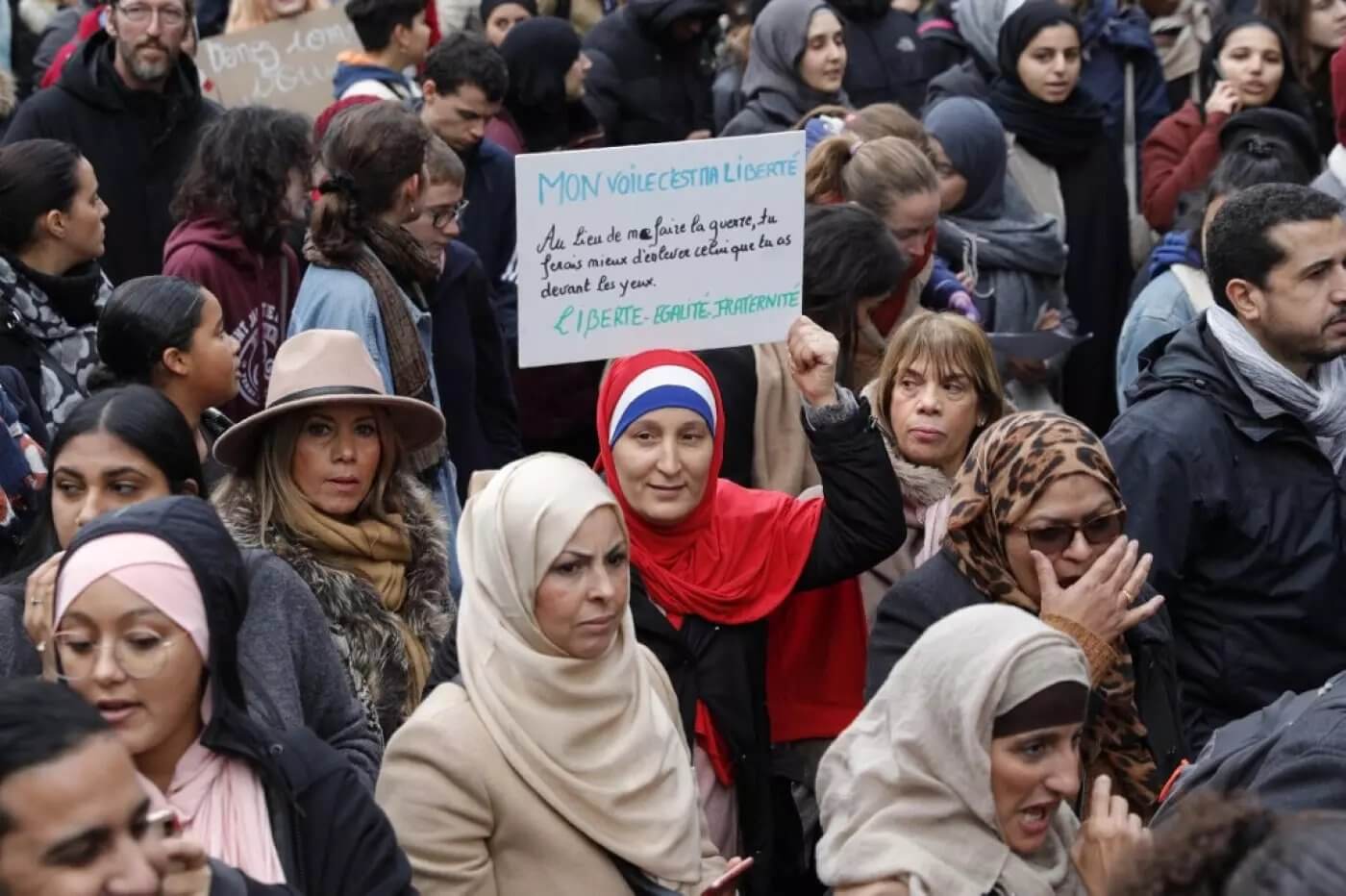French Education Minister Gabriel Attal declared on Sunday that the Islamic dress known as the abaya will be banned in schools.
According to reports, France has imposed a strict ban on religious signs in state schools, since 19th-century laws banned any traditional Catholic influence from public education, and struggled to update guidelines to meet the needs of a rising Muslim population.
Ban on ‘Abaya’
Attal said in an interview with French TV channel TF1, “The school of the Republic was built around strong values; secularism is one of them. When you enter a classroom, you shouldn’t be able to identify the religion of the pupils.” “I announce that [pupils] will no longer be able to wear abaya at school,” he added.
The French minister told TF1 that “secularism means the freedom to emancipate oneself through school,” and that the abaya is “a religious gesture aimed at testing the republic’s resistance towards the secular sanctuary that school must constitute.”
The abaya is a long, flowing dress worn by Muslim women as it conforms to Islamic ideals of modest attire; various communities in North Africa and the Middle East can also be seen wearing this dress.
Attal, who was appointed in July, said he will lead discussions in the coming weeks before announcing new “clear nationwide rules” for schools.
The decision comes after months of debate about wearing abayas in French schools, where women have traditionally been prohibited from wearing the hijab. According to reports, Abayas, unlike headscarves, occupy a grey area and were not explicitly banned until now.
France will ban children from wearing the abaya, the loose-fitting, full-length robes worn by some Muslim women, in state-run schools, its education minister said on Sunday, Reuters reported.#ArianaNews #France #abaya #Muslim #Women #Schools pic.twitter.com/s9tWSw5ZKl
— Ariana News (@ArianaNews_) August 28, 2023
Last month, Yal Braun-Pivet, President of the National Assembly and a member of President Emmanuel Macron’s Renaissance Party, asked for “a totally secular state school” with “no ramadan, no abaya, no ostentatious religious signs.”
According to the French Council of Muslim Faith (CFCM), a national group of various Muslim associations, clothing alone is not “a religious sign.”
As per the sources, secularism in French schools has long been a contentious issue, with supporters alleging that religion, particularly Islam, is invading public space. Religious minorities, according to critics, experience prejudice in a historically Christian society.
Anti-Muslim Policies, Statements
In 2010, France prohibited wearing full-face veils in public, causing outrage among the country’s five-million-strong Muslim population. The French Senate unanimously approved the bill, and the proposed legislation has also received support from the National Assembly, the lower house of parliament. The measure makes it illegal to wear clothing with a full-face veil, such as the niqab or burqa, in public.
In 2017, the French parliament passed an anti-terrorism bill to increase police surveillance powers and make it easier to shut down mosques suspected of spreading hatred.
The government claims that emergency powers in place since November 2015, when Islamist suicide bombers and gunmen killed 130 people in Paris, have played a vital role in enabling security agencies to thwart these plans.
Macron labelled Islam as a religion “in crisis” worldwide in 2020, and further claimed the government will introduce a measure in December to tighten a 1905 law that legally separated Church and State in France. He pledged a stronger system for monitoring education and greater control over foreign money for mosques.
In 2020, a radicalised Chechen immigrant killed a French teacher who had presented caricatures of the prophet Mohammad in class, escalating tensions concerning education and religion. Macron said the teacher “was killed because Islamists want our future,” but France would “not give up our cartoons.”
Many Muslims interpreted Macron’s statements as an insult, as images of the Prophet Muhammad are commonly considered taboo in Islam. Thousands of conservative Muslims from around the world showed up in protest of France’s alleged prejudice towards Islam.

